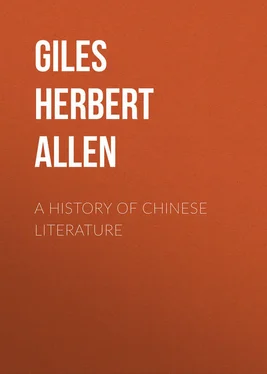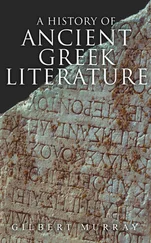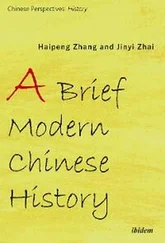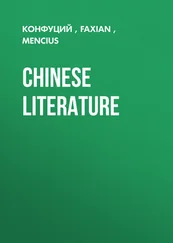Herbert Giles - A History of Chinese Literature
Здесь есть возможность читать онлайн «Herbert Giles - A History of Chinese Literature» — ознакомительный отрывок электронной книги совершенно бесплатно, а после прочтения отрывка купить полную версию. В некоторых случаях можно слушать аудио, скачать через торрент в формате fb2 и присутствует краткое содержание. Жанр: Критика, foreign_antique, foreign_prose, на английском языке. Описание произведения, (предисловие) а так же отзывы посетителей доступны на портале библиотеки ЛибКат.
- Название:A History of Chinese Literature
- Автор:
- Жанр:
- Год:неизвестен
- ISBN:нет данных
- Рейтинг книги:5 / 5. Голосов: 1
-
Избранное:Добавить в избранное
- Отзывы:
-
Ваша оценка:
- 100
- 1
- 2
- 3
- 4
- 5
A History of Chinese Literature: краткое содержание, описание и аннотация
Предлагаем к чтению аннотацию, описание, краткое содержание или предисловие (зависит от того, что написал сам автор книги «A History of Chinese Literature»). Если вы не нашли необходимую информацию о книге — напишите в комментариях, мы постараемся отыскать её.
A History of Chinese Literature — читать онлайн ознакомительный отрывок
Ниже представлен текст книги, разбитый по страницам. Система сохранения места последней прочитанной страницы, позволяет с удобством читать онлайн бесплатно книгу «A History of Chinese Literature», без необходимости каждый раз заново искать на чём Вы остановились. Поставьте закладку, и сможете в любой момент перейти на страницу, на которой закончили чтение.
Интервал:
Закладка:
“Among birds the phœnix, among fishes the leviathan holds the chiefest place;
Cleaving the crimson clouds the phœnix soars apace,
With only the blue sky above, far into the realms of space;
But the grandeur of heaven and earth is as naught to the hedge-sparrow race.
And the leviathan rises in one ocean to go to rest in a second,
While the depth of a puddle by a humble minnow as the depth of the sea is reckoned.
And just as with birds and with fishes, so too it is with man;
Here soars a phœnix, there swims a leviathan …
Behold the philosopher, full of nervous thought, with a flame that never grows dim,
Dwelling complacently alone; say, what can the vulgar herd know of him?”
As has been stated above, the poems of this school are irregular in metre; in fact, they are only approximately metrical. The poet never ends his line in deference to a prescribed number of feet, but lengthens or shortens to suit the exigency of his thought. Similarly, he may rhyme or he may not. The reader, however, is never conscious of any want of art, carried away as he is by flow of language and rapid succession of poetical imagery.
Several other poets, such as Chia I and Tung-fang So, who cultivated this particular vein, but on a somewhat lower plane, belong to the second century B.C., thus overlapping a period which must be regarded as heralding the birth of a new style rather than occupied with the passing of the old.
It may here be mentioned that many short pieces of doubtful age and authorship – some few unquestionably old – have been rescued by Chinese scholars from various sources, and formed into convenient collections. Of such is a verse known as “Yao’s Advice,” Yao being the legendary monarch mentioned in chapter ii., who is associated with Shun in China’s Golden Age: —
“With trembling heart and cautious steps
Walk daily in fear of God …
Though you never trip over a mountain,
You may often trip over a clod.”
There is also the husbandman’s song, which enlarges upon the national happiness of those halcyon days: —
“Work, work; – from the rising sun
Till sunset comes and the day is done
I plough the sod
And harrow the clod,
And meat and drink both come to me,
So what care I for the powers that be?”
INSCRIPTIONS
It seems to have been customary in early days to attach inscriptions, poetical and otherwise, to all sorts of articles for daily use. On the bath-tub of T’ang, founder of the Shang dynasty in B.C. 1766, there was said to have been written these words: – “If any one on any one day can make a new man of himself, let him do so every day.” Similarly, an old metal mirror bore as its legend, “Man combs his hair every morning: why not his heart?” And the following lines are said to be taken from an ancient wash-basin: —
“Oh, rather than sink in the world’s foul tide
I would sink in the bottomless main;
For he who sinks in the world’s foul tide
In noisome depths shall for ever abide,
But he who sinks in the bottomless main
May hope to float to the surface again.”
In this class of verse, too, the metre is often irregular and the rhyme a mere jingle, according to the canons of the stricter prosody which came into existence later on.
CHAPTER VI
TAOISM – THE “TAO-TÊ-CHING”
TAO-TÊ-CHING
The reader is now asked to begin once more at the sixth century B.C. So far we have dealt almost exclusively with what may be called orthodox literature, that is to say, of or belonging to or based upon the Confucian Canon. It seemed advisable to get that well off our hands before entering upon another branch, scarcely indeed as important, but much more difficult to handle. This branch consists of the literature of Taoism, or that which has gathered around what is known as the Tao or Way of Lao Tzŭ, growing and flourishing alongside of, though in direct antagonism to, that which is founded upon the criteria and doctrines of Confucius. Unfortunately it is quite impossible to explain at the outset in what this Tao actually consists. According to Lao Tzŭ himself, “Those who know do not tell; those who tell do not know.” It is hoped, however, that by the time the end of this chapter is reached, some glimmering of the meaning of Tao may have reached the minds of those who have been patient enough to follow the argument.
LAO TZŬ
Lao Tzŭ was born, according to the weight of evidence, in the year B.C. 604. Omitting all reference to the supernatural phenomena which attended his birth and early years, it only remains to say that we really know next to nothing about him. There is a short biography of Lao Tzŭ to be found in the history of Ssŭ-ma Ch’ien, to be dealt with in Book II., chapter iii., but internal evidence points to embroidery laid on by other hands. Just as it was deemed necessary by pious enthusiasts to interpolate in the work of Josephus a passage referring to Christ, so it would appear that the original note by Ssŭ-ma Ch’ien has been carefully touched up to suit the requirements of an unauthenticated meeting between Lao Tzŭ and Confucius, which has been inserted very much à propos de bottes ; the more so, as Confucius is made to visit Lao Tzŭ with a view to information on Rites, a subject which Lao Tzŭ held in very low esteem. This biography ends with the following extraordinary episode: —
“Lao Tzŭ abode for a long time in Chou, but when he saw that the State showed signs of decay, he left. On reaching the frontier, the Warden, named Yin Hsi, said to him, ‘So you are going into retirement. I beg you to write a book for me.’ Thereupon Lao Tzŭ wrote a book, in two parts, on Tao and Tê, 3 3 Tê is the exemplification of Tao.
extending to over 5000 words. He then went away, and no one knows where he died.”
It is clear from Ssŭ-ma Ch’ien’s account that he himself had never seen the book, though a dwindling minority still believe that we possess that book in the well-known Tao-Tê-Ching .
It must now be stated that throughout what are generally believed to be the writings of Confucius the name of Lao Tzŭ is never once mentioned. 4 4 The name Lao Tan occurs in four passages in the Book of Rites, but we are expressly told that by it is not meant the philosopher Lao Tzŭ.
It is not mentioned by Tso of the famous commentary, nor by the editors of the Confucian Analects, nor by Tsêng Ts’an, nor by Mencius. Chuang Tzŭ, who devoted all his energies to the exposition and enforcement of the teaching of Lao Tzŭ, never once drops even a hint that his Master had written a book. In his work will now be found an account of the meeting of Confucius and Lao Tzŭ, but it has long since been laughed out of court as a pious fraud by every competent Chinese critic. Chu Hsi, Shên Jo-shui, and many others, declare emphatically against the genuineness of the Tao-Tê-Ching ; and scant allusion would indeed have been made to it here, were it not for the attention paid to it by several more or less eminent foreign students of the language. It is interesting as a collection of many genuine utterances of Lao Tzŭ, sandwiched however between thick wads of padding from which little meaning can be extracted except by enthusiasts who curiously enough disagree absolutely among themselves. A few examples from the real Lao Tzŭ will now be given: —
“The Way (Tao) which can be walked upon is not the eternal Way.”
“Follow diligently the Way in your own heart, but make no display of it to the world.”
“By many words wit is exhausted; it is better to preserve a mean.”
Читать дальшеИнтервал:
Закладка:
Похожие книги на «A History of Chinese Literature»
Представляем Вашему вниманию похожие книги на «A History of Chinese Literature» списком для выбора. Мы отобрали схожую по названию и смыслу литературу в надежде предоставить читателям больше вариантов отыскать новые, интересные, ещё непрочитанные произведения.
Обсуждение, отзывы о книге «A History of Chinese Literature» и просто собственные мнения читателей. Оставьте ваши комментарии, напишите, что Вы думаете о произведении, его смысле или главных героях. Укажите что конкретно понравилось, а что нет, и почему Вы так считаете.












